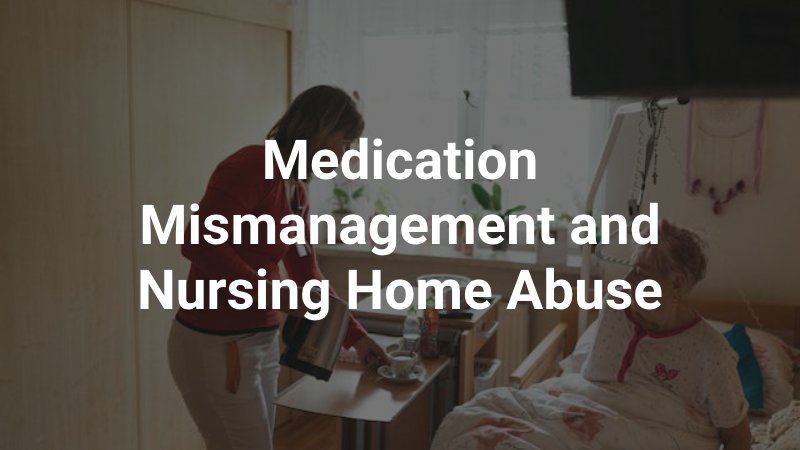
We trust the nursing homes we choose to provide skilled, compassionate care to our aging family members once their needs exceed a family’s capabilities. Sadly, nursing home staff and administrators do not always live up to their promises and the legally required duty of care. Nursing home abuse is an alarming phenomenon in the United States, impacting over 5 million American seniors each year. The alarming statistics include many forms of abuse, such as neglect, intentional physical abuse, emotional abuse, sexual abuse, and financial abuse. Mismanaged medications in elderly nursing home residents are often linked to all of the above types of nursing home abuse cases, including in Kentucky.
Nursing Home Residents Face an Increased Chance of Death due to Medication Mismanagement
The vast majority of elderly Americans are on multiple medications to treat chronic illnesses and medical conditions related to aging. Nursing home management must have a carefully constructed and well-executed plan for administering each resident’s daily medications per their doctors’ instructions. Failing to provide medications, missing doses, administering incorrect dosages, or failing to follow a dosing schedule or the correct administration method, all substantially increase the risk of death to the elderly in their care.
How Medication Mistakes in Nursing Homes Impact Quality of Life
Medication mistakes and intentional misuse also greatly impact a nursing home resident’s quality of life. For instance, some caregivers intentionally overuse sedative medications to make a nursing home resident easier to care for. This is known as using a chemical restraint and can quickly cause a decline in life quality for the senior.
In surprisingly common cases, caregivers and other staff members intentionally steal a resident’s pain medications for their own use or to sell, leaving the resident to suffer unnecessary physical pain from serious or terminal illnesses. As many as 10% of nursing homes in the U.S. report medication theft.
Medication mistakes and misuse not only cause worsened health conditions in elderly nursing home residents but may also leave them in a weakened condition or impact balance and coordination, increasing the risk of falls, choking, positional asphyxiation, and other accidents and injuries.
What Is a Nursing Home’s Duty of Care for Medicating Residents?
All nursing homes in Kentucky and elsewhere have a duty of care to their residents compelling them to provide basic, life-sustaining medical care, nutrition, hydration, hygiene, and social stimulation with compassion and respect for each resident’s human dignity. This legal duty of care includes correctly administering each resident’s daily medications according to their doctor’s instructions. Under these standards, nursing home caregivers must do the following:
- Know the resident’s medical history and list of daily medications and as-needed medications
- Keep track of the medications prescribed to each resident
- Promptly deliver the correct dosage of the appropriate medications at the scheduled time
- Provide supervision and oversight for medication administration
- Follow the facility’s medication error reporting guidelines
- Seek medical help if a resident experiences side effects
- Inform the resident’s family of all new medications prescribed to the resident
Nursing home caregivers must never overuse sedative medications to make the residents more compliant or less mobile. Doing so is a serious form of abuse.
What to Do If You Suspect Medication Mismanagement In a Nursing Home
The close family members of a nursing home resident should keep a current list of their loved one’s prescribed medication regimen, dosage, and administration schedule. If family members suspect medication mismanagement, mistakes, over-use, or theft, it’s important to immediately report the problem to the nursing home administrators, arrange a thorough medical examination for the loved one through a provider who is not associated with the facility, and contact their local ombudsman and an experienced Lousiville nursing home abuse lawyer.